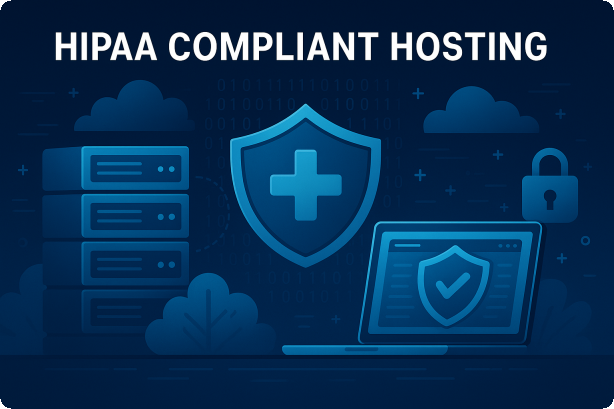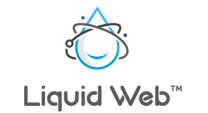
HIPAA compliant hosting provides websites and applications with servers specifically configured to meet HIPAA regulations, ensuring protection of sensitive healthcare data. It offers secure infrastructure, high-performance servers, and compatibility with healthcare applications, allowing organizations to manage patient information safely and efficiently. This hosting is ideal for healthcare providers, businesses, and projects that require strict data privacy and regulatory compliance.
HIPAA-Compliant Hosting Providers
We may earn a commission if you make a purchase through any of these providers.
HIPAA-compliant hosting plans vary based on security controls, compliance certifications, and management services offered by providers. When selecting a HIPAA-compliant hosting provider, it’s important to evaluate audit support, encryption standards, access controls, and available managed services. The best HIPAA hosting platforms offer certified environments, scalable infrastructure, and compliance management for healthcare workloads. Choosing an experienced provider helps ensure regulatory compliance, strong data protection, and long-term stability for healthcare applications.
Why Choose HIPAA-Compliant Hosting
Robust Data Security
Protecting patient information is the foundation of HIPAA-compliant hosting. Advanced encryption safeguards data both while it is being transmitted and while it is stored on servers. Firewalls, intrusion detection systems, and secure network configurations add additional layers of protection. These controls work together to prevent unauthorized access and data exposure. Strong security ensures sensitive medical records remain confidential at all times.
Access Controls and Authentication
Strict identity controls determine exactly who can access patient information. Multi-factor authentication and role-based permissions limit access to only approved staff members. Each user is granted access based on job responsibilities and clearance levels. This prevents accidental or intentional misuse of sensitive records. Controlled access reduces internal risk while maintaining operational efficiency.
High Availability, Backups, and Disaster Recovery
Healthcare data must remain accessible even during outages or system failures. Frequent automated backups protect records from accidental deletion, corruption, or cyber incidents. Redundant servers, storage systems, and network connections ensure uninterrupted access to patient records. Disaster recovery systems restore data quickly across multiple locations. High-availability infrastructure minimizes downtime while protecting both patient care and operational continuity.
Compliance and Business Associate Agreements (BAAs)
HIPAA-compliant providers formally commit to protecting patient data through Business Associate Agreements. These agreements clearly define responsibilities for data handling, security, and regulatory compliance. Providers follow strict HIPAA technical and administrative safeguards. Regular reviews ensure systems remain aligned with changing regulations. Legal accountability strengthens long-term compliance and risk management.
Auditing and Monitoring
Continuous monitoring tracks every access and system activity in real time. Detailed logs make it possible to review who accessed data and when changes occurred. Automated alerts identify unusual behavior or potential threats quickly. Auditing supports regulatory reporting and internal oversight. Proactive monitoring prevents small issues from becoming serious security incidents.
Patient Privacy and Trust
Strong privacy protections reassure patients that their medical information is handled responsibly. Secure systems reduce fears of data misuse or identity theft. Transparency and compliance build confidence in healthcare providers. Trust encourages honest communication and better patient outcomes. Protecting privacy strengthens long-term patient relationships.
Streamlined Collaboration
Secure platforms allow healthcare professionals to share data safely across departments and locations. Encrypted communication channels protect information during consultations and referrals. Controlled sharing improves coordination between physicians, specialists, and care teams. Faster collaboration supports more accurate diagnoses and treatment plans. Secure workflows improve efficiency without compromising compliance.
Operational Efficiency
Centralized, secure access to patient data reduces paperwork and manual processing. Automated systems speed up record retrieval and documentation tasks. Staff spend less time managing files and more time caring for patients. Efficient workflows reduce administrative strain across departments. Improved efficiency directly supports higher quality healthcare delivery.
Enhanced Reputation
Demonstrating strong data protection builds confidence among patients, partners, and regulators. HIPAA-compliant hosting shows a serious commitment to privacy and security. Organizations strengthen credibility by meeting strict regulatory standards. Trust supports patient loyalty and long-term relationships. A strong reputation becomes a competitive advantage in healthcare services.
Tips for HIPAA Compliant Hosting
Ensure HIPAA compliance:
Choose a hosting provider that signs a Business Associate Agreement (BAA) and meets all HIPAA requirements.
Encrypt data:
Use encryption for data at rest and in transit to protect sensitive patient information.
Regularly back up data:
Automate secure backups to prevent data loss and ensure rapid recovery in case of incidents.
Implement strict access controls:
Restrict server and application access to authorized personnel and monitor activity logs.
Monitor and audit systems:
Continuously track server performance, security events, and compliance logs to maintain HIPAA standards.

